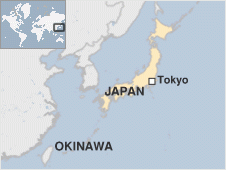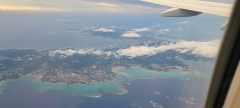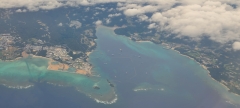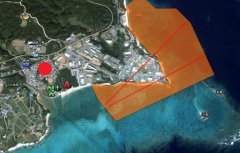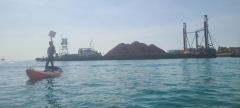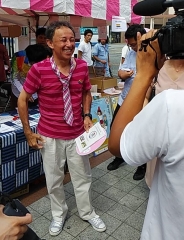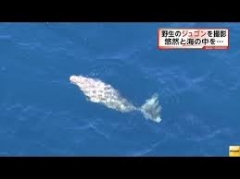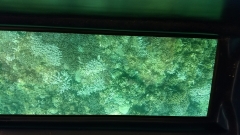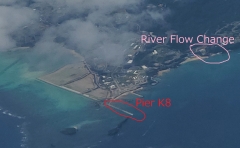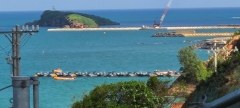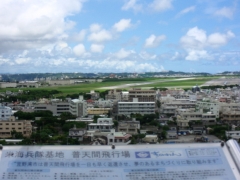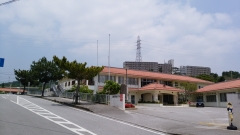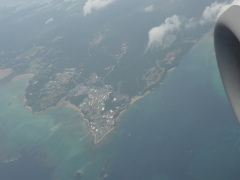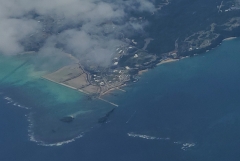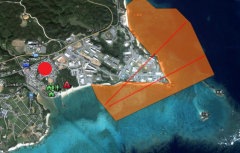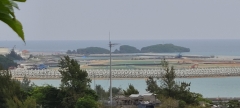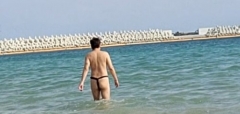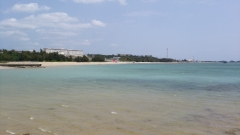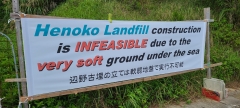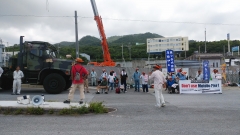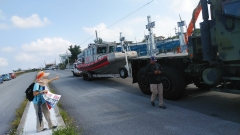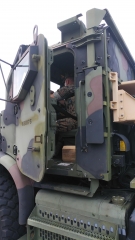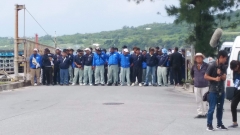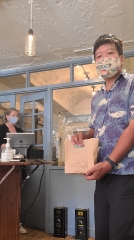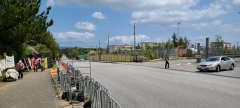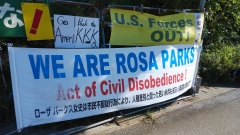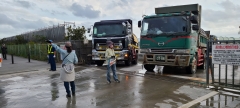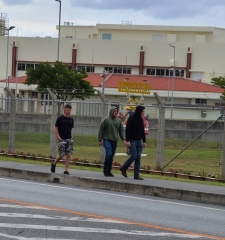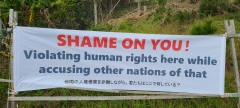02 July 2023
Affirmative Action cannot be a solution
US supreme court ruled the affirmative action which sets racial quota in college admission is unconstitutional.
I, myself think it is not a bad ruling.
When a college chooses who is qualified for its students, why does race matter? Grade Point Average, entrance test scores do matter. Race matters only when an interview is conducted.
As for diversity thing,
As Justice Thomas Clearance said,
"I'd like you to tell me expressly when a parent sends a kid to college, they don't necessarily send them there to have fun or feel good or anything like that," Thomas said. "They send them there to learn physics or chemistry or whatever they're studying."
Yes, school is for nothing but studying subjects to get education.
Discrimination is a problem when the college rejects a student only because of his/her skin color.
Even college admission solely based on scores and ability to study, results in racial or gender bias, this does not mean it was an unfair judgement.
Selecting someone based on his/her trait by birth cannot be a good way to remedy society.
Thomas Clearance nominated by Bush administration era was a good example. He's made several rulings against his own people so he was not liked by his people as I recall my college days, a Black professor in Black Studies course said "Just because he was Black, this works better for Black people. No!"
America is a fundamentally white dominated racist society. So, such fundamental cannot be easily fixed.
23:13 Posted in Politics, Society, USA issues | Permalink | Comments (0) | Tags: afro-american, racism
30 September 2022
Dear US Government re: request for stopping USMC new base construction in Okinawa, Japan
Update version of the following letter is posted on June 11, 2024 adding latest information.
Please move to this letter instead of the below.
Dear US President Biden, Congressmembers, Senators and other decision makers of the issue,
My name is MASAGATA, a Japanese man living in Tokyo. I used to study at San Francisco State University, where I majored in International Relations. I am now working as a translator using the English knowledge I acquired in the US.
I am writing this letter to urge US government to discontinue and terminate current ongoing landfill construction project to build a new US Marine base runways at Camp Schwab, Henoko, Nago city, Okinawa prefecture.
This is the modified version of the letter I sent US Congress members and Senators in a joint Armed Forces Committee which was finalizing National Defense Authority Act three years ago and the letter I wrote last March. I added updated information including Russian invasion of Ukraine and the Taiwan crisis to it. I visited Okinawa many times and have been engaged in this issue since 2009.
The below is main points I would like to describe in this letter.
- What has been going on up until now
- Locals strongly oppose the new base construction
- Precious wildlife and ecosystem are threatened
- Technically, physically infeasible project
- America is held accountable for this weird construction project
- Growing doubts about US commitment to Japan’s defense
- Your Servicemen & women and American residents are facing hostility in Okinawa
- Russia and China are watching what America is doing in Okinawa
Some of the below photos can be enlarged by clicking on them.
----------------------------------------------
1. What has been going on up until now
Okinawa is chain of islands and southernmost prefecture below mainland Japan. The climate is subtropical and blessed with abundance of nature surrounded by coral reef. It is 3 hour-flight from Tokyo and very famous for marine leisure tourism just like Hawaii. In fact Okinawa went through the same path as Hawaii did.
Until the end of 19th century it was an independent kingdom but annexed by mainland force. In 1945 US forces occupied Okinawa and then Okinawa has been occupied until 1972, which was 20 years after the mainland Japan regained sovereignty and was the only place that experienced ground battles within Japan, causing 200,000 civilian casualties during WW II.
The current population of Okinawa prefecture is 1.45 million.
In 1996 both the American and Japanese governments agreed to relocate US Marine Corp. Futenma base in Ginowan City, Okinawa to Camp Schwab to get away from the densely populated area around Futenma, together with some of Futenma capabilities to relocate to Guam in the Pacific.
Camp Schwab is on the coastline of Okinawa island, in an area called Henoko.
The relocation plan includes reclamation of the sea to build a new base that consists of two runways and ports expanding existing facility. Schwab is located in between Henoko coast (left) and Oura Bay (right) as you see in the photo taken on May 20, 2021.
The below orange area is the planned reclamation area on Henoko coast. The red lines are runways built on the reclamation area. The red point on the left is local residential area next to the Camp Schwab.
2. Locals strongly oppose the new base construction
Since the plan was announced, locals and activists from all over Japan have been protesting the new base construction by holding referendums, supporting candidates of mayoral and gubernatorial election, and municipal assembly members, who oppose the construction, as well as sit-in demonstration at the gate of Camp Schwab and kayaking at the landfilling site as civil disobedience act. Until now, tens of protesters were arrested and injured by police at the gate or coast of Camp Schwab.
In September 2018, Okinawans elected Denny Tamaki as a Governor of Okinawa after death of then governor Takeshi Onaga, who was opposed to the new base construction. Mr. Tamaki succeeded the will of Onaga and won the election. He was formerly a Diet, Japan’s National Assembly member.
His father was a US Marine serviceman stationed in Okinawa and mother was Okinawan native. It was first time in Japan that a racially mixed man was elected as governor of one Prefecture. He proved that Japan is no longer homogeneous population and the nation can tolerate racial diversity. (Next photo is Mr. Okinawa Governor Denny Tamaki.
In February, 2019, Okinawa held referendum to ask whether locals approve or oppose the landfill construction at Henoko sea for the construction of a new United States Marine Corps base. The outcome was that 71% of voters oppose the new base construction.
The main reason to oppose the relocation of Futenma is the relocation takes place within Okinawa island, not outside of Okinawa prefecture, which cannot reduce burden on Okinawans' lives.
This year’s September Tamaki’s second gubernatorial election was held and he won again overwhelmingly defeating other two candidates.
After the election, nationwide opinion poll was conducted by KYODO NEWS agency and revealed 57% of Japanese nationals are opposed to proceeding of the construction.
3. Precious wildlife and ecosystem are threatened
Many environmental activists also oppose the plan because of the abundance of forms of wildlife that are unique to the area around Camp Schwab.
This photo is of a dugong, an endangered marine mammal that eats grasses in the sea. It is just ridiculous that the nation that protests Japan’s whaling in the Antarctic Sea – and even dolphin hunting in Taiji, Wakayama Prefecture that ex-US Ambassador to Japan, Caroline Kennedy, a daughter of late President J.F.Kennedy, was eager to protest – is helping to threaten another marine mammals that live in Japan.
In Oura Bay, the world’s largest, oldest and the northernmost blue coral lives and has continued to grow for 3000 years.
Many new species are discovered in the bay recently. A lot more may be still undiscovered. It is estimated more than 5600 species exist in the Henoko and Oura bay area. That is more than all species in the Great Barrier Reef in Australia.
Great biodiversity for humanity lies in the sea. (The banner posted at the entrance gate of Camp Schwab where servicemen and women, and workers pass)
US Marine Environment Protection Organization, Mission Blue designated the area as one of “Hope Spots.”
On Henoko coast, the sea is now enclosed and being reclaimed and dugongs and other creatures’ lives are now threatened. Dugongs’ sea grass is found in the current reclaiming area and some of untouched planned areas. They are losing their feeding place.
As for blue coral, reclaimed space can change the sea current and might adversely affect life of the coral. Then what will happen is that your nation will be accused of helping to diminish such wonderful and rare creatures.
Actually, the Japanese Ministry of Defense carried out an environmental assessment in which it was claimed that there were no dugongs in the sea. But the environmental organizations such as WWF and The Nature Conservation Society of Japan claim that the MoD’s assessment was wrong and the organizations’ own research found clear traces confirming the existence of dugongs. Later, Okinawa’s local newspaper revealed the news that the MoD was aware of the finding but had covered it up.
Because of these facts, the petition to the White House to halt landfilling of the sea was launched in 2018.
https://petitions.whitehouse.gov/petition/stop-landfill-henoko-oura-bay-until-referendum-can-be-held-okinawa
(Stop the landfill of Henoko / Oura Bay until a referendum can be held in Okinawa Created by R.K. on December 08, 2018)
More than 200000 signatures were collected in two months.
The petition campaign was widely spread by a famous fashion model and TV personality, Rola (Mixed race woman between Japanese and Bangladesh), who posted the petition campaign on her Instagram page. She was an environmental activist.
The White House has not yet responded to the petition officially.
Since this year’s spring, another bad progress has been made as part of the reclamation project. One of piers to build on the sea for the reclamation was extended so that it is blocking one of major tidal currents to the bay.
As shown in the below photo taken on 12 September 2022 from the airplane, the red circle is pier K8 which has been extended. The pink circle area is the construction site of River Flow Change to the sea. That river, called Bisha-gawa pours cold water into the bay, which cools down the temperature of the sea water so that many unique species can survive.
Both the tidal current and the river flow to the bay are significant to keep the good environment for the wildlife in the bay. But these constructions destroy the environment.
Pier K8 viewed from River Flow Change construction site (Above)
The construction must be stopped immediately. No time for the wildlife and ecosystem to wait .
4. Technically, physically infeasible project
There are technical issues revealing infeasibility of the construction project as follows.
Active faults are found down below planned construction site of runways. If that is the case in California, the project wouldn’t be permitted.
Around planned construction site of runways there are buildings higher than US military aviation standard, flying helicopters or ospreys there might cause collision with these buildings, similar situation to Futenma Air Base in Ginowan city. (The below photo is Futenma base and its surrounding area from observatory site in the city.)
The buildings include school and its dormitory at which young students attend classes or reside. No plan of relocation is announced although a power transmission tower next to the building was already planned to relocate from that site. (The below photo is a local town next to Camp Schwab.) It is known over 350 buildings are placed above the height limitation for the planned runways. It is not only dangerous for locals but for pilots.
(Photo taken in Henoko district near the sea coast)
Illustration of how danger the flying zone of the planned new runways, excerpt from the local newspaper, Okinawa Times, the red line is the supposed height limitation for the runways.
Geological survey conducted in the sea to landfill indicates sea ground is too soft to pile soil on like mayonnaise, which consumes more budget and time to landfill so the construction period should be much longer than expected like 20 years from now.
Or even more because the very soft ground exists in the layer of 90 meter below sea level but modern technology allows contractors to solidate the ground only up to 70 meter deep.
The below photo was taken in January 2018.
The below was taken on 12 September, 2022.
Although the landfilling already started in Heneoko sea side area (left side), but at this point only one third of all the planned area is landfilled and even that one third is not fully landfilled yet. It was filled up to 3 meters high but still requires another 4 meters, which would take at least another 3 years and the other two thirds on Oura bay side (right side of the photo) have not started at all due to the technical issues related to very soft ground under the sea. Henoko side is shallow but Oura bay side is very deep.
Even after 3 years passed since landfilling started, only less than 10 % of total amount of soil was used.
The below photo is Henoko coast side landfill. Only 3 meter of planned 7 meter is filled up. (Photo taken in January 2022)
This is just a little bit over the beach. One can easily walk in the water to the reventment. (Photo taken in September 2022)
The below photo (March 2022) is Henoko coast side landfill. Only 3 meter of planned 7 meter is filled up.
It is not too late to get back to the original landscape like one when the reclamation wasn't done as a next photo taken in April 2017 shows.
Initially that bigger Oura area, was supposed to be landfilled first but it was found even piers cannot withstand minimum level of earthquake. MoD knew this fact in 2015 but had not revealed it until 2017.
Even US GAO (Government Accountability Office) recently and the Washington base think tank CSIS recently reported Henoko landfill construction is difficult to implement due to the technical issues.
It is possible that the project is terminated halfway for some reason but irreversible damages would be left together with grudge from locals. Some portion of the budget for relocation of Marine Corp. to Camp Schwab and Guam is spared by US Government. That means this project wastes not only Japanese tax payers’ money but Americans as well.
It has been done for the interests of the few. The few, you might know, are certain businesses and government people who want some gains from the project. One of major contractors of the project is Taisei Kensetsu Corporation, where third son of the former Prime Minister, Suga, works. Typical "Pork Barrel" project." They are proceeding this just to make it "fait accompli."
As long as the construction goes on, the contractors can gain profits until the termination. For the Marines, the current Futenma base can be used as long as possible. While the construction goes on, irreversible damage on the environment is being expanded.
5 . America is held accountable for this weird construction project
You might say this issue is something to be handled by the Japanese government, and that it is not the responsibility of the US military. But that sounds very hypocritical. The US military is the one that uses the facility and up until now involved in designing of new runways and annexed facilities. The US government can stop that project and find another relocation site outside Okinawa.
If the US continues to attribute this to the Japanese government, it is just like what Japanese conservative politicians say when it comes to the “Comfort Women” issue: “The Japanese Imperial Army was not responsible for kidnapping women in Asia for sexual slavery for soldiers during the war period in the early 20th century, it was what outsourced local brothels did.” The US Congress disavowed such argument and made a resolution to demand that the Japanese government apologize for former comfort women in 2007.
6. Growing Doubts about US commitment to Japan’s defense
In fact, the US military presence in Okinawa and even nationwide is becoming nothing but troublesome. More of us know that the US military presence no longer functions as defense or deterrence like in the Cold War era. China is said to be a new threat but we know that US-China relations have become more vital for your nation since China sometimes owns more US treasury bonds and buys more US goods than Japan does. China has become a larger economy than Japan these days.
We can easily predict that the US would not help Japan even if China and Japan became involved in a dispute for some reason such as the territorial right to the Senkaku islands located in between sea border of Japan and China. The US cannot send troops to assist Japan fighting against the Chinese military because such action might cause great losses for your national interests. China also played a big role in negotiating with North Korea. China is vital for US foreign policy.
Current ongoing crisis in Ukraine revealed US reluctance to help its ally. US announced that they would not send troops to help Ukraine from Russian invasion although US signed the security assurance memorandum in 1994 and just before the invasion started, US claimed that it would not stop Ukraine from joining NATO members. Ukraine military once did joint military exercise with the US military so Ukraine expected that US and NATO allies would send troops and set no-fly zone over Ukraine like they did in Yugoslavia but such thing never happened.
US and NATO allies could fight in such affair if they were willing to even though they have no biding treaty with Ukraine. During 1990’s US and NATO allies implemented air strikes in Kosovo without a relevant treaty.
Military experts and even former US military officials say that the biggest reason that the US military forces stay in Japan is to cut cost of their own because Japan provides host nation support fund, which we call “Sympathy Budget” that accounts for more than 70% of total expense for the US bases in Japan. There are more than 130 facilities of US military in Japan. Most of the troops are stationed at 30 facilities in Okinawa prefecture that accounts for 1 % of total of Japan’s territory and population.
During Vietnam War, it was a transit point to transport soldiers, military weapons and equipment. Now there is no strategic importance. How many of US congressmen and senators knows Okinawa? Is this place worth keeping bases in?
Recently China increased military capability significantly so Okinawa, where several major bases are concentrated, now have become very vulnerable to the attack from China. Okinawa is obviously within China’s missile range. Once the dispute occurs, China can shoot missiles to destroy runways in Okinawa before any planes takes off. Military strategists claim it is better to disperse bases in Asia-Pacific in order to counter the military threat from China. Eggs in a bucket can easily be broken. China has more than 30 air bases for long-range fighter-jets around Taiwan while US military has only two, Kadena in Okinawa and Yokota, in Tokyo.
Taiwan crisis recently highlighted and intensely provoked by Nancy Pelosi, Speaker of the United States House of the Representatives proved the US military presence is just nothing but troubles to the East Asia.
Pelosi's visit to Taiwan were thought to be for upcoming congressional election campaign. Soon after her visit, China conducted the military drills on the sea around the Taiwan island, including the sea near one of the Okinawa islands, one of Japan’s Economic Exclusive Zones, then Okinawan fishers could not sail during the drill losing income.
Unlike the case in Ukraine, both the US and Japan cannot accuse China of occupying Taiwan since the two nations promised China with “One China Policy” in exchange for normalizing diplomacy. China is our close neighbor. We do not want to be retaliated by China for assisting Taiwan, in order to follow US twisted foreign policy. Japan’s economy is in fact, more dependent on China than the US. Letting US military use the bases within Japan to assist Taiwan is detrimental to our national interests.
In addition, like Russia, China possesses nuclear arms. As for what is going on in Ukraine, US could not get involved in the war against Russia because it wants to avoid the nuclear war.
We are sure that's the same case for the war against China.
Deploying your military so much in our country, especially Okinawa is just causing growing distrust against your country. I believe the Okinawa issue presents the perfect timing for your nation to rethink its military deployment in Japan in order to improve the relationship between the two nations. Constructing a base on reclaimed land in the Henoko sea is the worst possible idea.
The Image of America is getting worse lately
US military presence functions to apply American influence on our nation. Yes, it did work that way but you really have to know this may be working negatively. The image of your country itself is no longer positive like in the past. In other words, the US is no longer a powerful land of dreams, nor is it any longer a role model for us.
One example of this can be seen in a recent best-selling book on your country’s poverty issue. The title of the book is “Rupo Hinkontaikoku America” (Report, Poverty Superpower, America). It was written by a Japanese journalist, TSUTSUMI Mika. The book describes how Americans are struggling with poverty in a plutonomy society and explains how Japan should not follow suit.
We know that a lot of young Marine troops stationed there come from poor families that cannot afford college education and have problems like domestic violence. They join the Marines by system, so called, Poverty Draft. That is why they cause troubles with Okinawa locals.
In addition, four years of Trump administration proved disparity among your nation. Although Trump lost in last year’s presidential election. 74 million Americans voted him, record number among sitting presidents. His comments during the administration delivered very negative images of America to Japanese citizens. We expect someone like him would be reelected in the near future, which is disappointing me, who learnt decency of America.
Trump once claimed Japan should pay 4 times of the current amount of “Sympathy Budget (host national support)”, which is unacceptable - showed America’s unwillingness of defending Japan.
7. Your Servicemen & women and American residents are facing hostility in Okinawa
In September 2019, US Marines faced apparent resistance from locals and activists. citizens blocked port entry of US Marine vehicles carrying a boat for training. The port was located in Motobu town, 30 minute drive from Henoko and the boat was supposed to be shipped to nearby island.
Young military servicemen and women had to hear yelling from protesters and waited inside the vehicle for hours without air condition. The Marine vehicle was trying to enter the port to unload the boat to use for training on the sea.
Even port workers were standing at the entrance as human shield. The workers oppose military use of the port because they want to allow only civilian use. After 10 hours of sit-in protest, Marine vehicle with the boat on a trailer had to leave the port to go back to Camp Schwab.
Recently I met an American woman who manages a cheese shop “Little Greek Kitchen” at Plaza House Shopping Center in Okinawa. She was interviewed by Japan’s national television station NHK, and said that she did not want her shop to be recognized as US military affiliated because reputation of US military has been very bad. She welcomes anyone regardless of nationality or what organization they belong to.
I, myself have begun to think the oppression by the US military is due in part to America’s racial prejudice against Okinawans and Japanese nationals. Like the very old man who was selling his books of autobiography at the shopping mall as shown in the below photo, whom I met last year’s May, who was from Mississippi and settled down in Okinawa since 1960’s and prided himself on hiring many Okinawans in his business – claimed that in his younghood before he came to Japan, segregation in his homeland was not a problem until Yankees came in and the film “Mississippi Burning” was exaggerated.

I, myself have experiences of racial discrimination while I was a college student in the US, 1990’s. America is in fact, white dominated racist society. That is why Trump was elected. People other than white are easily generalized and discriminated.
At the Camp Schwab gate, every day they have to see the protesters’ civil disobedience act and in many times being yelled at and called names. They never feel welcome. I do not think they feel honored to serve Marine Corp. as long as they are stationed in Okinawa.
Just next to Camp Schwab personnel entry gate is construction vehicle gate where every weekday, protestors sit-in to block the construction vehicles so that less vehicles could get in and delay the construction.
In Abu and Shiokawa ports located on the opposite side of the island, where soils for the reclamation is being transported from nearby mountains to Henoko, local protestors stand in front of trucks to slow the work.
Do you think this situation creates healthy relationship among US, Japan and Okinawa? Proceeding of such unnecessary and infeasible construction are just making things worse. It should be halted immediately for the friendship or for the time being, construction must be stopped for the review.
Current Japanese government is willing to continue this but the opposing parties announced the termination of the construction if they regain the governance of Japan since the local protest is growing bigger than ever and the construction is found to be infeasible. Even a former Defense Minister, Nakatani in the current ruling party claimed it should be stopped.
Moreover, COVID-19 pandemic delays the construction schedule in addition to the local resistance. In April 2020 the construction was halted for 2 months because the workers got infected. Camp Schwab service personnel got infected as well. More budget for the pandemic relief is required. We are meeting with the serious budget shortage due to the pandemic as well as oil and commodity price surge caused by the war in Ukraine.
8. Russia and China are watching what America is doing in Okinawa
The end of last year when new recruits came to Okinawa bases including Camp Schwab and they went out of the camp without wearing masks on their faces, the infection cases grew rapidly within the Okinawa island. Okinawa had to restrict business activities which damaged its local economy.
At that time, Chinese foreign ministry spokesman claimed US is responsible for the widespread infection so US should not lead COVID-19 counter-measures as it prides themselves to be. (Photo taken near the Camp Schwab fence on 27 December 2021, when mask wearing was mandated in Okinawa, actually still madated now)
Russian President Vladimir Putin mentioned this Henoko new base construction issue in December 2018 and claimed doubts about Japan’s territorial sovereignty on northern territorial islands just below Sakhalin which currently Russia administered because the construction has proceeded even though local governor and local residents opposed the plan.
If Japan is a democratic state, that shouldn’t happen. Russia worried if the islands were returned to Japan, US military bases might be placed just near the Japan-Russia boarder. Thanks to that, the territory was never brought back due to Japan’s too much dependency on US military.
Putin just recently brought up history of nuclear attacks in Hiroshima and Nagasaki as America's inhumane acts. He claimed that Japan should recall this attack as America's inhumane attack on Japan. Russians are interested in the Henoko issue so when the referendum was held in February 2019, journalists of Interfax Press came to Okinawa to report what is going on. I was interviewed by them and was asked why Japanese conservatives support such US military base construction despite their nationalism. (The below photo is the Russian journalists interviewing beforementioned White House petition campaigner, Rob Kajiwara, Naha city, Okinawa, February 2019)
Last May I was interviewed by a Chinese journalist from Shanghai. Chinese are very interested in this issue to know how US and Japanese governments treat Okinawans for the Henoko new base construction issue as well as Russians are.
US claimed that democracy is best system for humanity. So authoritarian regimes such as Russia and China are not good. But in Okinawa US seems to prove the reverse. As things like go on, these nations would bring up Okinawa issue to counter US appeal of how great democracy is.
As for practical solutions, I recommend your organization to review a proposal by a private think tank, The New Diplomacy Initiatives (http://www.nd-initiative.org/en/), which suggests removal of US Marine bases from Okinawa but instead, establishing joint Humanitarian Assistance/Disaster Relief (HA/DR) Corp. with Japan’s Self-Defense Force equipped with high speed transport vessels, which rotates around East Asia. It is cost-effective and able to contribute to security of the region more realistically.
Rationality is what Americans value most when it comes to policy-making. I hope US make a very rational decision on this issue for the friendship between the two democratic nations. Such infeasible and stupid construction is the most irrational thing to do in history.
Sincerely,
P.S. Permit me for writing some awkward or grammatically incorrect phrases since I am not a native speaker of English.
I recently wrote a novel based on this issue. Please read the story so that you can feel like being in Henoko.
20:30 Posted in Ecology, Japan News, Politics, US-Japan relationship, USA issues | Permalink | Comments (0) | Tags: okinawa, military
21 August 2022
Novel: "Henoko Bar, Stars and Stripes" Chapter 8 "We Shall Overcome"
In Henoko, Nago City, Okinawa Prefecture, shaken by the issue of the construction of a new U.S. military base, a female singer time slips to the time in the midst of the Vietnam War. What is the Henoko New Base Problem? What is the Vietnam War? What is America? What is Okinawa?
A short story in 9 chapters. Each chapter features famous songs from Japan, the United States and Okinawa.
Please read from Chapter 1.
That evening, Naomi was standing in front of the Stars and Stripes wall building with her guitar strapped on her shoulders. This building seemed to symbolize the "American world" of Okinawa during the period of American rule. She wondered what she could do.
She sang several times in this building. She wondered what kind of song she was going to sing this time. If she didn't come by herself, the entrance door of this building would not be open. Naomi waited patiently on the road of the quiet village until something could be heard from inside like before. But nothing was heard.
She glared at the door, and decided to approach the door, thinking that she would put her hand on the knob of the door anyway and try to open it anyway, but the door opened from inside as she approached.
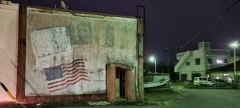
Music was heard from inside. It's an oldies song on the jukebox. It's not "oldies" in the world inside.
Naomi immediately walked into the bar. The inside was as crowded as ever. It was a stark contrast to the silence outside that she’d been in for a while. Kenny was at the counter. Naomi headed for the counter.
"Kenny, good evening," Naomi called out over the counter. She pulled her guitar down her shoulder and leaned against the side of the counter.
"Hi, Sister," Kenny said. She could see that his expression was a little harder than usual.
"How are you doing?" asked Naomi.
"Well, I've decided to quit here, I worked here right after graduating from junior high school, but a relative in the mainland asked me if I wanted to go to high school there," Kenny said with a wry face.
"Oh, that’s nice," Naomi said.
"It's hard for me to leave Okinawa, but I just don't know if working in this bar all the time would open up my life. I felt that I had to study properly and get to know the world well. Hey, you sang Amazing Grace last week. I thought Tony cried for his brother killed in battle and he said he was going to the battlefield like his brother.
They're nasty guys for us but I realized they're just helpless people in front of the state. They think they are doing something good by being submissive to the state," Kenny said.
Naomi also remembered Tony. What kind of thoughts will Tony have when he goes to the battlefield? Is he going to take revenge on his brother on the battlefield? Will that hatred be enough to make him want to fight?
Can’t imagine how he would treat the Vietnamese people. Naomi thought that the Vietnam War was the wrong war in the first place, and that she should not let anyone go. As a future person who knew the consequence of the war, she wanted to convey that.
"Kenny, then I would like you to study hard in the mainland and come back to Okinawa as a respectable person. Yes, if you become a politician. I want you to become a member of the Diet representing Okinawa or even a prefectural governor," she encouraged Kenny.
"I can't be such a good person, let alone a member of Parliament or a prefectural governor, I'm a child of Blacks. No one is going to vote for me," Kenny said with a laugh.
Naomi said.
"You should have a dream. Like ”I have a dream.” Let’s have dreams," Naomi recalled of a phrase she learned in high school English class.
"Dreams?" But Dr. King was killed because he said that," Kenny said.
"But the spirit is inherited, he passed the Civil Rights Act to eliminate discrimination and he won the Nobel Peace Prize. It has greatly changed the world where Blacks were not allowed to use the same facilities as whites. He did not use violence. He guided many people with speech and non-violent disobedience and contributed to the realization of the dreams. You can be like Dr. King. I know," Naomi said.
"Why?" asked Kenny.
"I know the future, and in the future, Black man will be the president of America," Naomi said confidently.
Kenny smiled widely.
"Hey, are you from the future?" Kenny asked Naomi.
"Yes, sir," she replied emphatically.
Kenny said, stunned.
"Hmmm, I believe it, Sister you look different from people of today. I mean, in the future, will you see me if I become such a great person?"
"I hope to see you again," Naomi said with a smile.
"Oh, by the way, I have to give back the Sanshin instrument claw that I forgot to give back," Kenny said.
"It's OK. Hold on to it. So that you don't forget Okinawa and me," Naomi said.
"OK, then I'll take care of it," Kenny said happily.
Suddenly, she noticed Jimmy beside her drinking a glass of liquor.
"Kenny, one more drink," he said, holding out his glass to Kenny. Jimmy looked very nervous and his face was blushing. He looked pretty drunk.
"Hi, Jimmy," Naomi called out.
"Hey, Naomi, did you come to sing again? Last week's Amazing Grace was awesome. I'm glad to hear you sing again," he said in a rather drunken manner.
Naomi said to Jimmy, worring about last night incident for her.
"How's Tony doing?" It was painful to see how sad he was because of his brother’s death," Naomi said.
"He left for Vietnam yesterday. After the death of the serviceman’s family member, he could be given a reprieve, but he went to the battlefield immediately because he wanted” Jimmy said.
Naomi was horrified to hear that. So what would Tony do in Vietnam? And what would happen to Tony?
"Now I've been ordered to be dispatched the day after tomorrow, and tonight is the last time I can have a drink here" said Jimmy.
"I see," Naomi said.
Jimmy walked over the counter and headed for the jukebox, tossing coins in. Music played. A song that Naomi also knew, "Will you still love me tomorrow?" by Shrells?
Jimmy approached Naomi and offered her a hand, saying, "Dance with me." Naomi involuntarily took Jimmy's hand and then he pulled her tightly, starting their dance. Naomi was good at singing, but not so much dancing. Somehow, Jimmy hooked her up to dance like a blues or jilba to the tempo of the song.
The lyrics are a mixture of the joy of love and the anxiety ahead: "You love me kindly and with all your strength tonight, but will you love me the same way tomorrow?" Jimmy's expression was hardened. Yes, it could be the last dance of his life.
When the song ended, Jimmy said "Thank you" and went back to the counter and continued drinking. Naomi was somewhat curious, "How long is the flight from Okinawa to Vietnam?"
"This time, I'm not going to go directly to Vietnam from Okinawa. I'm going to stop at Yokota Air Base in Tokyo and join another unit and go to Vietnam. It's a weird detour, but I get an extra two days off. I can take a look at your city," Jimmy said to Naomi with an awkward smile.
Naomi was taken aback by the word "Yokota Base." She looked at Kenny and said.
"Kenny, I wonder if there's somewhere in this bar where I can be alone with Jimmy," Naomi said, looking around the bar's space.
"Oh, there's a private room in the back there, we don't usually use it," said Kenny. She saw a curtain hanging in the direction he was pointing. It was in the corner of the bar.
"Jimmy, can we just talk alone?" said Naomi.
"Why, is there something special?" Jimmy said, looking at Naomi with a crease between his eyebrows.
"I have a very important story to tell," Naomi said, taking Jimmy's hand and pulling it towards the curtain. Jimmy casually followed suit.
Once they were inside, Naomi closed the curtains. In the private room, a sofa and chairs were placed across the table. Naomi sat down in a chair and Jimmy sat on the couch and faced each other at the table.
"Jimmy, you may not believe what I'm about to say, but listen, I'm from the future," Naomi said with a serious expression.
"Oh, what are you saying? From the future? When did you come from?" Jimmy said.
"It's 2018, fifty years from now. From the future where the Vietnam war you are fighting in is long over," Naomi said.
"You're kidding, I don't know if I'm drunk or if you're drunk, but this is the first time I've ever been told this. Time machines were in science fiction novels, are you kidding me?" said Jimmy.
This reaction was expected. Naomi pulled her phone out of her pocket.
"Look at this," she said as she showed Jimmy the screen of her smartphone. A flat screen with lights and icons lined up was displayed.
"What is this?" asked Jimmy with a look of surprise.
"It's the phone of the future," Naomi said.
"Phone, is this it? It doesn’t have a cord," Jimmy said.
"It's wireless," Naomi said.
"But you can't use it in this day and age, because you don't have a radio wave that you can use. But visual things can be done. Like this," Naomi said, playing the downloaded video.
The video begins with the title "The Vietnam War" and the theme song.
"Wow, is it a color TV in this flimsy machine?" said Jimmy.
"Yes, in the future, this little machine can contain images and music that you can listen to and watch wherever you are," Naomi said.
"It's like a 007 movie, isn't it a special spy gear?" I know a movie where there is a TV on a radio walkie-talkie."
"It's something that everybody has in the future, and unlike movies, it's not something with combined fictional images. It has a camera and you can take photos and videos."
Naomi said, stopping the documentary, activating the camera and filmed Jimmy.
Then she immediately played back and showed a video of Jimmy moving his face.
"You just shot me now?" There's an eight-millimeter film in it and developed it right away? It is also very clear. It's amazing," Jimmy said, his eyes wide open and he couldn’t hide his surprise.
"Next time, watch this video, this is a TV show that summarizes the history of the war you are involved in now. You can see how people of the future came to record this war," Naomi said.
Jimmy watched the video on her smartphone screen with interest.
The documentary begins with the so-called "Indochina War" after World War II, when the Southeast Asian country of Vietnam campaigned for independence in order to be liberated from its colonies from France. Narration is covered in past photographs and film footage.
Vietnam had been colonized by France after a dynasty collapsed in the nineteenth century, and the national independence movement flourished after the second world war. As a result, the Democratic Republic of Vietnam led by Ho Chi Minh was established in the north, but the Republic of Vietnam was established in the south with the support of the United States and Godin Jem as president.
The United States, in order to succeed France, which had lost its colonies, decided to establish a puppet state for fear of the spread of communism from the north. There was an intention to prevent the spread of communism, so-called domino theory countermeasure.
However, the political situation in South Vietnam was unstable, and Godin Jem suppressed the people with a dictatorship. Monks who were oppressed by the Catholic establishment sometimes set themselves on fire on the streets. In South Vietnam, a force called the "South Vietnamese Liberation Front" commonly known as the "Viet Cong" who aimed to unify with North Vietnam arose.
The Viet Cong shook Saigon, the then capital of South Vietnam, with bombings. U.S. military bases in South Vietnam were also attacked.
In 1964, the U.S. Navy launched retaliatory bombing on the grounds that it had been attacked by North Vietnamese forces on the high seas off Vietnam. This is later revealed to be a lie, but this triggerd the start of the Northern bombings, which attack military bases in North Vietnam. With the approval of Congress, then-U.S. President Johnson began full-scale military intervention in Vietnam.
From the following year, more than 100,000 land troops were deployed to South Vietnam. The land force's strategy was "Search and Destroy", which was to find villages with Viet Cong forces in South Vietnam, rob villagers of food, and burn down their homes.
In Vietnam, which had a lot of dense rainforests, the Viet Cong, who were good at guerrilla warfare, had an overwhelming advantage. In addition, under circumstances where it was difficult to distinguish which villages were connected to the Viet Cong, they had no choice but to carry out sabotage activities at random. US military tried to gain an advantage in jungle warfare, spraying large amounts of defoliants containing toxic dioxins from the air to destroy Viet Cong strongholds and village farmland.
Although the U.S. military used overwhelming military power and the latest weapons, the Viet Cong and the North Vietnamese People's Army forced them to struggle with persistent resistance, and in January 1968 the Tet Offensive that occurred on the Lunar New Year in Vietnam began.
In particular, the Viet Cong's occupation of the U.S. Embassy in Saigon has made the disadvantages of the U.S. military clear. The Tet Offensive was suppressed, but the U.S. Embassy Occupation was broadcast live to American homes via television broadcasts.
Footage of Viet Cong soldiers with their hands tied up being shot dead by South Vietnamese troops on the streets was also broadcast, raising questions about the reality of South Vietnam, where the U.S. was on its side.
In the United States, the anti-war movement flourished, and young people took action to refuse conscription. In October 1967, tens of thousands of anti-war demonstrators gathered in Washington, D.C., eventually storming the Pentagon building and clashing with police officers.
Civil rights leader Dr. Martin Luther King Jr. also expressed his anti-Vietnam War views. Dr. King said.
"We cannot turn a blind eye to the unreasonableness of a young white man and a Black man who are not even allowed to be in the same classroom in schools in their home country but die together on the battlefield."
Dr. King's close relationship with President Johnson, who passed the Civil Rights Act, allowed him to enter and leave the White House freely, but he was locked out at the same time as he joined anti-war movement.
Dr. King was assassinated by a white man in April 1968.
Later, President Johnson, whose support had fallen due to the plight of the U.S. military in Vietnam, announced that he would not run in that year's presidential election. The ruling Democratic Party was divided. Robert Kennedy, the younger brother of the assassinated former President Kennedy, ran for president on a promise of an honorable withdrawal from Vietnam, but he was assassinated during the election campaign.
So far, so good, is a historical facts that Jimmy had known already.
And from here, it was a fact that only future people could know.
In 1968, U.S. troops to Vietnam increased to more than 500,000 troops.
On August 29 of the same year, a peace march by 10,000 young people in Chicago was stopped from walking by a large number of Chicago police on its way to the site of the convention of the ruling Democratic Party, which was promoting the Vietnam War, and eventually developed into an incident of police officers beating citizens. It was remembered in history as the Chicago riots.
Participants crowded into police officers.
"We just want to have a peaceful march, why not?"
"No. I can’t permit you to march like that," the middle-aged policeman replied.
Still, as the protesters advance, the police waved batons and other weapons to block their way. Many people were seriously injured. Police dragged the participants into a police convoy. Activists imprisoned in convoys sang "We Shall Overcome." The song was originally gospel sung in church, but was changed to a pop tone to boost the morale of participants at anti-racism civil rights rallies.
It was also to be sung in the anti-war movement of the Vietnam War.
In the presidential election of the same year, there was a change of government, and President Nixon, a Republican Party, was elected. Nixon had pledged an honorable withdrawal of U.S. troops from Vietnam. He then went on a policy of gradually reducing the number of U.S. troops, but the fighting continued.
At that time, it was discovered that a massacre occurred in a place called Mi Lai Village in Vietnam, which was considered to be a Viet Cong village by U.S. troops and became the target of an attack, and it was taken up by the media. More than 500 villagers, including women and children, who had nothing to do with the fighting, were slaughtered and shocked American society.
The convicts were accused of killing large numbers of innocent civilians as part of an annihilation operation to kill all the enemy, according to accompanying soldiers who witnessed the scene. This further intensified anti-war public opinion.
In 1970, a whistleblower complaint by a U.S. government official exposed a classified document called the "Pentagon Papers" to influential newspapers such as the New York Times and the Washington Post. The contents of the report were analyzed as covert operations against Vietnam that have been hidden until now and the fact that the U.S. military was at a disadvantage from the beginning, and it turned out that if the analysis had been followed, it may have been possible to prevent the quagmire in Vietnam, and then publice demand for the withdrawal of the American people from Vietnam became stronger and stronger.
In 1972, the U.S. military withdrew from Vietnam for the most part, leaving the role to the remaining South Vietnamese National Armed Forces.
In April 1975, Saigon fell. As a symbolic image, North Vietnamese People's Army tanks broke into the presidential palace and occupied the place. At the same time, the U.S. Embassy was closed, and Vietnamese who had been cooperating with the South Vietnamese government rushed to the embassy for fear of a purge by the North Vietnamese. A black helicopter takes off from the embassy and takes refuge on an aircraft carrier at sea.
They landed on the deck, but many people boarded the carrier, and the helicopter lost its place and was dumped in the sea.
Vietnam achieved the long-awaited national reunification, and North and South Korea unified and became the Socialist Republic of Vietnam. It took twenty years that Vietnam and the United States restored diplomatic relations.
From then on, Vietnam became a symbol of America's frustration and failure. It will also be a big scar. Footage of a deformed child born to a former soldier who were physically disabled by defoliants sprayed in Vietnam was shown. The situation of the Vietnamese people were worse than the American soldiers. Even in the generation born after the war, the effects of defoliants continued to remain in the environment. There are no limbs, the skeleton of the face collapsed, and all the images are unbearable to watch.
Later, the history of the Vietnam War became a movie. "Apocalypse Now" (1979) depicts a former U.S. military officer who hid in the jungles of Vietnam, created his own kingdom with the natives, and viewed the U.S. soldiers as enemies.
"Platoon" (1986) depicts young U.S. soldiers who joined the unit of the Viet Cong extermination operation killing and raping civilians, as well as the extreme situation in which friends kill each other.
"Born on the Fourth of July" (1989)
Ron Kovic, a volunteer soldier to Vietnam born on National Day of the US Independence, killed his comrade in a friendly fire accident, later got severely injured to a wheelchair. When he returned home, he was in the midst of the anti-war movement, and he himself reconsidered the war and got himself into the anti-war movement.
There was a scene where he stormed into the presidential convention on a wheelchair and appealed to the media about the ridiculousness of the Vietnam War, and there was a scene where he confessed to the family of the soldier whom he killed accidently in a fight. The dead soldier's sister told Ron Kovic:
"I can never forgive you, but the Lord does."
The video was about twenty minutes long, and although Jimmy was drunk, he continued to watch the video with serious eyes. He was silent for a while after he finished watching, but suddenly smiled.
"Wow, that's the toy of the future. Are you an anti-war activist? What do you want me to do by making this film and showing it?" said.
"It's hard to believe it, I know, it's such a bizarre thing. But right now, even in your country, many people are wondering about this war. Dr. King objected, and there are anti-war movements happening all over the place and some people refuse to be drafted," Naomi said.
"I think I should do my duty, as an American citizen," Jimmy said.
"But it's painful to think that you're going to be hurt in a war or killed like Tony's brother, and you're not the kind of person who can hurt people. And a man of justice. I don't want you to kill an innocent person on the battlefield," Naomi said, forming a few tears from her eyes.
"What do you want me to do?" Jimmy asked.
"There's a bar called RUNAWAY near Yokota Air Base, about a five-minute walk away, and there's a guy named Hara there. If you talk to him, you don't have to go to the battlefield," Naomi said timidly.
"Oh, are you telling me to be a deserter, that's a crime act," Jimmy said.
"If you go to the battlefield, you might commit a worse crime," Naomi said.
"I won't disobey the orders of the state," Jimmy said.
"But if America is a democratic country, shouldn't you also use the power of the citizens to correct the government from doing the wrong thing?" said Naomi.
"I don't want to be seen as a coward, I'm not going to run away," Jimmy said.
"It may be considered courageous to fight in the war, but I think you should have the courage not to fight in the wrong war," said Naomi.
There was silence for a moment.
"Hey, show me the film again," Jimmy said.
Naomi replayed the video on the smartphone.
"Can you skip the first half of this film" said Jimmy.
"Sure, I can" said Naomi.
He asked her to fast-forward the video until a scene where the participants of the peace march in Chicago and the police team were talking face to face.
"Stop it," Jimmy said.
"Again," he asked her to repeat the scene.
"Thanks, the toys of the future are really amazing. Was this developed by NASA? Or the Soviet KGB? Is it an electrical manufacturer somewhere in Japan? I don't know, but you showed me something interesting," Jimmy said.
"Jimmy, please, think about it, for your sake. For your country. And for the world," Naomi became very sentimental.
"Sing a good song, will you," Jimmy said, opening the curtain and walked out of the private room and towards the counter. He ordered whiskey from the master who was standing beside Kenny at the counter. It's like he can't help but drink a lot.
Naomi picked up her guitar and headed for the stage. Then she started playing guitar and sing.
We Shall Overcome, We Shall Overcome,
We Shall Overcome some day
Oh, Deep in my heart, I do believe.
We Shall Overcome some day,
We are not afraid, We are not afraid,
We are not afraid today
Oh, Deep in my heart, I do believe.
We Shall Overcome some day,
We Shall Live in Peace, We Shall Live in Peace
We Shall Live in Peace some day,
Oh, Deep in my heart, I do believe.
We Shall Overcome some day,
The American soldiers in the audience had mixed reactions. Some simply fell in love with Naomi's beautiful voice, while others felt resistance to it because it was an anti-war song. Perhaps because of that, the inside of the bar has become quiet. There were many young people, but the atmosphere has changed to one that one does not feel bustling.
Jimmy stared at Naomi as he approached the board with the dollar bills on it, pulled a bill out of his pocket, wrote his name by the pen on the counter, and pinned it down. It was the same board that Tony pinned down.
Naomi shouted desperately.
"Comeback, alive, Do the Right thing!"
She thought she told Jimmy what she had to say. She had no intention of persuading him. She did it because she thought it was her duty to tell him that.
The bar master approached her on the stage.
"You do it again, why are you doing this? You are breaking the mood, now get out!" Naomi glared at the master and followed Jimmy out of the bar door with her guitar strapped on her shoulders.
Outside was a quiet August 2018 night in the village of Henoko.
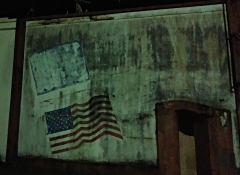
To be continued in Last Chapter.
14:30 Posted in Music, My novel, USA issues | Permalink | Comments (0)
19 July 2022
The Rise of "White America" Roe vs. Wade Overturned!
Last month US Supreme Court made a historic decision, overturning Roe vs. Wade ruling 1973. The court's ruling leaves abortion rights to be determined at the state level. Several GOP-led states have already moved to enact statewide bans.
Next target may be gay marriage, sodomy law and voting rights for people of colour.
American society is moving counter-clockwise recently.
Kind of "Back to White America" movement in which Conservative White American traditions should be considered norm.
Surely many liberal Americans oppose such movement especially among people of colour.
So they try to move things back to their norms. But conservative White Americans have already determined their own norms and would never listen to other opinions.
Even almost half a century passed since Roe vs. Wade ruling, this conservative Christian fundamentalist value still persists in American society. After all this is the core value of American society.
Rather than creating further division within the society, why not establish a new nation within the continent like Native American tribe territory. Establish "White America"!
Maybe somewhere in between deep South States such as Alabama, Louisiana, and Mississippi. That would be a new state where only conservative White Christian Americans can be residents and live happily everafter without bumping progressive ideas such as feminism, religious freedom, racial equality, LGBTQ rights and etc.
It doesn't matter what is right or wrong. What matters is whether you feel comfortable or not. Life is short. You can't deal with so many fusses.
"White America" may be the realistic and practical solution for America sadly.
18:04 Posted in Health, Politics, Society, USA issues | Permalink | Comments (0) | Tags: women, racism, lgbt, religion






